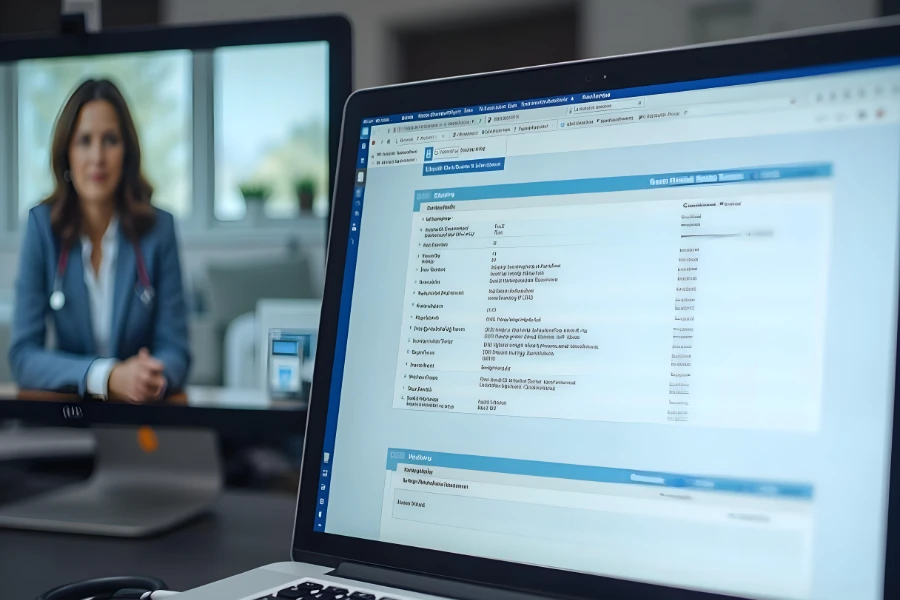The healthcare industry is undergoing rapid transformation, and medical billing services are no exception. In 2025, advancements in technology, regulatory shifts, and evolving patient expectations are poised to reshape how medical billing operates. For healthcare providers, staying ahead of these trends is crucial to ensure efficiency, compliance, and profitability. This blog delves into the emerging trends shaping the future of medical billing services and what providers can expect as they adapt to a dynamic landscape.
Increased Adoption of Artificial Intelligence and Automation

Artificial Intelligence (AI) and automation are at the forefront of the revolution in medical billing. By 2025, AI will play a critical role in streamlining claims processing, detecting errors, and preventing claim denials. Machine learning algorithms will enhance predictive analytics, enabling providers to forecast trends and optimize revenue cycles.
Key Benefits of AI in Medical Billing:
- Automated coding reduces human error.
- Faster claim submission and processing.
- AI-driven audits to ensure compliance with ever-changing regulations.
For example, AI-powered systems will identify incorrect or incomplete data before claim submission, significantly reducing the rejection rates that cost practices time and money.
Shift to Value-Based Care and Its Impact on Billing

The shift from fee-for-service models to value-based care (VBC) is set to redefine medical billing practices. Under VBC, providers are compensated based on patient outcomes rather than the volume of services rendered. This trend necessitates changes in billing codes and documentation requirements.
What to Expect:
- Increased focus on bundled payments and quality metrics.
- Integration of patient-reported outcomes in billing data.
- Collaboration between billing companies and providers to align financial processes with VBC models.
This shift demands that billing companies adopt more sophisticated software and train staff to handle these new models efficiently.
Enhanced Cybersecurity Measures

With the rise in digital billing systems, cybersecurity has become a paramount concern. The healthcare industry continues to be a prime target for cyberattacks due to the sensitive nature of patient data. By 2025, medical billing services will prioritize implementing robust cybersecurity protocols to protect against breaches and ensure compliance with regulations like HIPAA.
Trends in Cybersecurity for Medical Billing:
- Use of blockchain technology for secure data sharing.
- Biometric authentication for access control.
- Regular penetration testing and vulnerability assessments.
Investing in cybersecurity not only safeguards patient information but also builds trust with providers and patients alike.
Advanced Integration with Electronic Health Records (EHRs)

Seamless integration between EHRs and medical billing systems, especially in medical billing services in US, will become more prevalent in 2025. This integration simplifies the billing process by providing access to accurate and up-to-date patient records, ensuring proper coding and faster reimbursement.
Benefits of EHR-Billing Integration:
- Real-time updates to patient information.
- Automated coding suggestions based on clinical data.
- Reduced manual data entry errors.
Enhanced interoperability will also facilitate better communication between providers, billing companies, and payers, creating a more efficient healthcare ecosystem.
Outsourcing as a Growing Trend

The complexity of medical billing is driving more healthcare providers to outsource their billing processes to a reliable medical billing agency. By 2025, outsourcing to such agencies will become a preferred strategy for managing revenue cycles, particularly for small to mid-sized practices.
Advantages of Outsourcing Medical Billing:
- Access to expert professionals and advanced technology.
- Cost savings compared to maintaining an in-house team.
- Scalability to accommodate practice growth or changes in patient volume.
Outsourcing allows providers to focus on patient care while ensuring that billing processes are handled efficiently and accurately.
Greater Emphasis on Patient-Centric Billing

Patient satisfaction is increasingly tied to the billing experience. As healthcare consumers become more financially conscious, transparent and user-friendly billing processes are essential. By 2025, patient-centric billing will be a core focus for billing services.
Key Features of Patient-Centric Billing:
- Clear, itemized bills with minimal jargon.
- Flexible payment options, including online portals and installment plans.
- Proactive communication about payment responsibilities and insurance coverage.
This trend aligns with the broader push for improved patient engagement across the healthcare industry.
Expansion of Telehealth Billing Solutions

Telehealth surged in popularity during the COVID-19 pandemic, and its adoption shows no signs of slowing. By 2025, medical billing services will need to address the unique challenges of telehealth billing, including differing payer policies and regulatory requirements.
What to Expect in Telehealth Billing:
- Standardization of telehealth billing codes.
- Simplified processes for cross-state licensing reimbursements.
- Integration of telehealth billing with traditional healthcare billing systems.
Adapting to these changes ensures that providers can maximize reimbursements for virtual care services.
Regulatory Changes and Compliance Challenges

The healthcare industry is heavily regulated, and staying compliant with new rules is a constant challenge. By 2025, medical billing companies will need to stay ahead of changes such as updates to ICD codes, payer requirements, and federal healthcare policies.
How to Stay Compliant:
- Regular training for billing staff on new regulations.
- Implementation of compliance management software.
- Collaboration with legal experts to ensure adherence to evolving standards.
Proactive compliance measures will reduce the risk of audits, penalties, and claim denials.
Data-Driven Decision Making

Data analytics will play a pivotal role in shaping the future of medical billing. Billing companies will leverage data to identify trends, optimize operations, and provide actionable insights to healthcare providers.
Applications of Data Analytics:
- Identifying patterns in claim denials to improve accuracy.
- Analyzing payer performance for better contract negotiations.
- Predicting patient payment behaviors to enhance collections.
By harnessing the power of data, medical billing services can drive better financial outcomes for providers.
Focus on Sustainable Practices

Sustainability is becoming a priority across industries, and medical billing is no exception. By 2025, there will be a greater emphasis on adopting eco-friendly practices in billing operations.
Sustainable Initiatives in Medical Billing:
- Transition to paperless billing systems.
- Use of energy-efficient cloud storage solutions.
- Recycling and responsible disposal of outdated hardware.
These initiatives not only benefit the environment but also align with the values of socially conscious patients and providers.
Final Thoughts
The future of medical billing services is marked by innovation, adaptability, and a commitment to excellence. Trends like AI, value-based care, cybersecurity, and patient-centric approaches are reshaping the industry, offering providers new opportunities to optimize their revenue cycles and enhance patient satisfaction.
As we look ahead to 2025, staying informed about these trends is essential for healthcare providers and billing companies alike. By embracing these changes, the industry can overcome challenges, improve efficiency, and continue to thrive in a rapidly evolving landscape.
For healthcare providers seeking expert support, partnering with a forward-thinking medical billing company can be a game-changer in navigating the future of medical billing.









